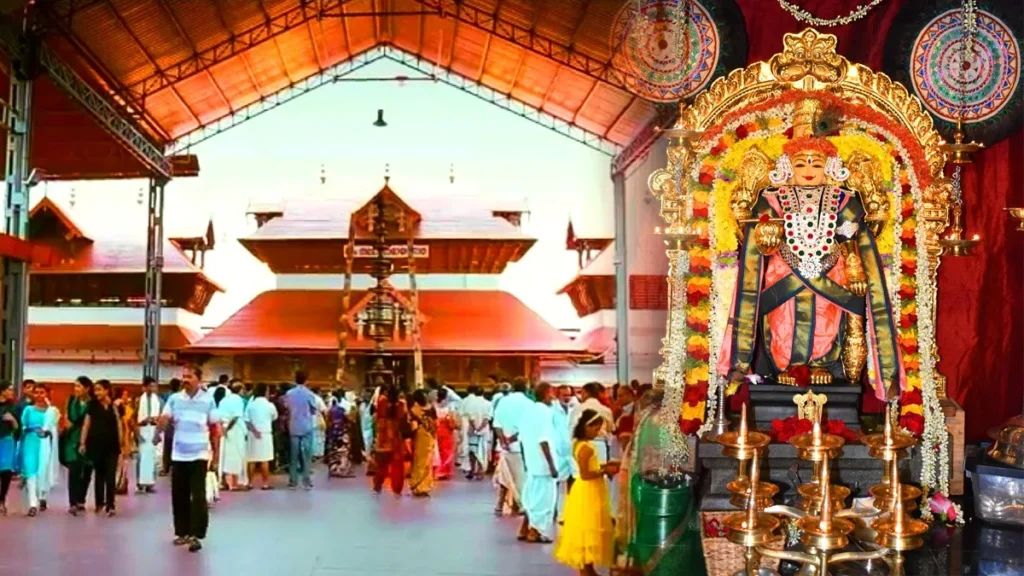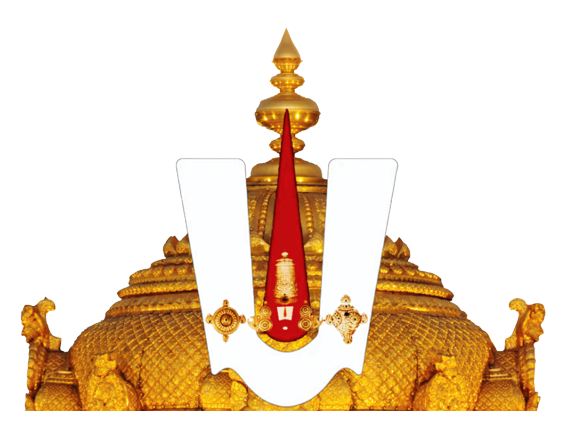Explore the daily pooja schedule at Guruvayur Temple, from the early morning Nirmalyam darshan to the night-time Thrippuka ritual. Learn about the significance of each ritual, special poojas, and how devotees can participate. Discover the best time for darshan, temple traditions, and spiritual practices in this comprehensive guide.

Guruvayur Temple, located in Kerala, India, is one of the most revered pilgrimage sites dedicated to Lord Krishna. The temple’s daily pooja (ritual) schedule is meticulously designed to offer continuous worship from the early hours of the morning until night, allowing devotees to engage in various ceremonies throughout the day. This article provides a comprehensive overview of the daily pooja schedule at Guruvayur Temple, detailing each ritual’s significance and timing.
Table of Contents
Temple Opening and Nirmalyam
The temple doors open at 3:00 AM, marking the beginning of the day’s rituals. The first ceremony is Nirmalyam, conducted from 3:00 AM to 3:20 AM. During Nirmalyam, the deity is unveiled, and devotees witness the Lord adorned with the flowers and decorations from the previous day. This ritual signifies the continuity of worship and the eternal presence of the divine.
Early Morning Rituals
Following Nirmalyam, a series of early morning rituals are performed:
- Thailabhishekam, Vakacharthu, and Sankhabhishekam (3:20 AM to 3:30 AM): These involve anointing the deity with oil, applying a fresh coat of sandalwood paste, and performing ablutions with sacred conch water.
- Malar Nivedyam and Alankaram (3:30 AM to 4:15 AM): Offering of puffed rice (Malar) to the deity, followed by adorning the idol with fresh garments and ornaments.
- Usha Nivedyam (4:15 AM to 4:30 AM): The first food offering of the day, presented to the Lord in the early hours.
- Ethirettu Pooja and Usha Pooja (4:30 AM to 6:15 AM): A series of poojas conducted to welcome the dawn, invoking the deity’s blessings for the day ahead.
Morning Rituals
The morning rituals are as follows:
- Seeveli, Palabhishekam, Navakabhishekam, Pantheeradi Nivedyam, and Pooja (7:15 AM to 9:00 AM): A procession (Seeveli) is conducted, followed by abhishekam (ritualistic bathing) with milk (Palabhishekam) and other sacred substances (Navakabhishekam). The Pantheeradi Nivedyam involves offering food to the deity, followed by pooja ceremonies.
Ucha Pooja (Noon Pooja)
- Ucha Pooja (11:30 AM to 12:30 PM): The midday pooja includes elaborate rituals and offerings, signifying the peak of daily worship.
After Ucha Pooja, the temple closes from 1:30 PM to 4:30 PM.
Evening Rituals
The evening rituals commence as the temple reopens:
- Seeveli (4:30 PM to 5:00 PM): Another procession symbolizing the Lord’s presence among devotees.
- Deeparadhana (6:00 PM to 6:45 PM): The evening worship with the lighting of lamps, creating a serene and divine ambiance.
Night Rituals
The concluding rituals of the day include:
- Athazha Pooja Nivedyam (7:30 PM to 7:45 PM): The final food offering to the deity for the day.
- Athazha Pooja (7:45 PM to 8:15 PM): The last pooja of the day, seeking the Lord’s blessings for a restful night.
- Athazha Seeveli (8:45 PM to 9:00 PM): The concluding procession, marking the end of the day’s rituals.
- Thrippuka and Olavayana (9:00 PM to 9:15 PM): The final ceremonies involving the waving of sacred flames and recitation of prayers.
The temple doors close at 9:15 PM, concluding the day’s worship activities.
It’s important to note that these timings are approximate and may vary on special occasions or during specific poojas like Udayasthamana Pooja, which involves extended rituals throughout the day. Devotees are encouraged to check the official temple website or contact the temple administration for the most up-to-date schedule.
Experiencing the full spectrum of daily poojas at Guruvayur Temple offers devotees a profound connection to the divine, immersing them in the rich traditions and spiritual ambiance of this sacred place.
Let’s take a detailed look at the importance of each pooja performed at the temple.
1. Nirmalyam – Witnessing the Lord’s Celestial Presence (3:00 AM – 3:20 AM)
- Meaning: This is the first darshan of the day, where devotees see the idol of Guruvayurappan as he was the night before.
- Significance:
- The Lord is unveiled after his divine rest, covered with the garlands and sacred remnants from the previous night’s pooja.
- Devotees believe that praying during Nirmalyam grants immense blessings, as they see the deity in a pure and untouched state.
2. Thailabhishekam, Vakacharthu, and Sankhabhishekam (3:20 AM – 3:30 AM)
- Meaning: This involves the ritualistic bathing of the idol with sacred substances.
- Significance:
- Thailabhishekam: The idol is anointed with oil, symbolizing cleansing and rejuvenation.
- Vakacharthu: The deity is covered with fresh sandalwood paste, which has cooling properties and represents divine beauty.
- Sankhabhishekam: Water from the sacred conch is poured over the deity, signifying purification.
3. Malar Nivedyam & Alankaram – The Lord’s First Offering & Adornment (3:30 AM – 4:15 AM)
- Malar Nivedyam: The first prasadam (offering) of the day is given to the Lord, consisting of puffed rice.
- Alankaram: The idol is adorned with fresh garments, jewelry, and flowers, making the Lord ready for the day’s poojas.
4. Usha Pooja – Morning Worship (4:30 AM – 6:15 AM)
- Meaning: The first formal pooja of the day to invoke Lord Krishna’s blessings.
- Significance:
- Conducted during the Brahma Muhurta (auspicious morning hours), believed to be most effective for spiritual practices.
- Special mantras and bhajans are chanted, filling the temple with divine vibrations.
5. Seeveli Procession – Lord’s Morning Walk (7:15 AM – 9:00 AM)
- Meaning: The idol of Lord Krishna is carried around the temple in a grand procession.
- Significance:
- It symbolizes that the Lord steps out to bless all devotees, just as a king greets his subjects.
- Elephants decorated with gold-plated ornaments (Nettipattam) lead the procession, adding to the grandeur.
6. Ucha Pooja – The Grand Noon Ritual (11:30 AM – 12:30 PM)
- Meaning: This is the most elaborate pooja of the day, performed at midday.
- Significance:
- The temple bells ring loudly, signifying the divine energy at its peak.
- Special offerings, including rice, sweets, and ghee, are presented to the deity.
- Devotees believe that offering prayers during this time grants fulfillment of desires.
7. Deeparadhana – The Lord Illuminated (6:00 PM – 6:45 PM)
- Meaning: The temple is lit up with thousands of oil lamps, creating a mesmerizing spectacle.
- Significance:
- The glowing lamps represent the light of wisdom dispelling the darkness of ignorance.
- Devotees chant the Hare Krishna mantra, filling the air with divine vibrations.
- This pooja marks the transition from day to night, symbolizing Krishna as the eternal protector.
8. Athazha Pooja – The Lord’s Night Worship (7:45 PM – 8:15 PM)
- Meaning: The final pooja of the day, akin to offering night prayers before sleep.
- Significance:
- The idol is bathed, dressed in simple attire, and offered night prasadam.
- The atmosphere is calm and serene, making it an ideal time for deep meditation and devotion.
9. Thrippuka – The Divine Farewell (9:00 PM – 9:15 PM)
- Meaning: The closing ritual where incense smoke (Dhoopam) is waved before the deity.
- Significance:
- It symbolizes the final prayers and purification of the temple for the night.
- The Lord is put to rest, and the temple doors are closed until the next day.
How Devotees Can Participate in Poojas at Guruvayur Temple
If you wish to actively participate in the daily poojas, here’s how:
1. Booking Special Poojas
- Devotees can book poojas online or at the temple counter.
- Popular offerings include:
- Tulabharam – Weighing oneself in bananas, coconuts, or ghee as an offering.
- Prasadam Seva – Donating food for the temple Annadanam (free meal service).
2. Virtual Queue for Darshan
- To avoid long wait times, devotees can pre-book Darshan slots via the official temple website.
3. Dress Code for Entry
- Men: Dhoti, no shirts allowed inside the temple.
- Women: Saree, churidar, or traditional attire.
Festivals and Special Poojas at Guruvayur Temple
Apart from the daily pooja schedule, Guruvayur Temple is famous for grand festivals:
1. Guruvayur Ekadasi (November – December)
- The biggest festival at the temple.
- Thousands of devotees observe fasting and night-long prayers.
2. Vishu (Kerala New Year – April)
- The Lord is decorated with special golden ornaments for this occasion.
- Devotees visit early morning to see the Vishu Kani (auspicious sight of the Lord).
3. Ashtami Rohini (Krishna Janmashtami)
- Special Krishnanattam performances narrate Lord Krishna’s life stories.
Author:
Smt. Rajeshwari Balaji
Expertise: Pilgrimage experiences and travel tips
Email: [email protected]

